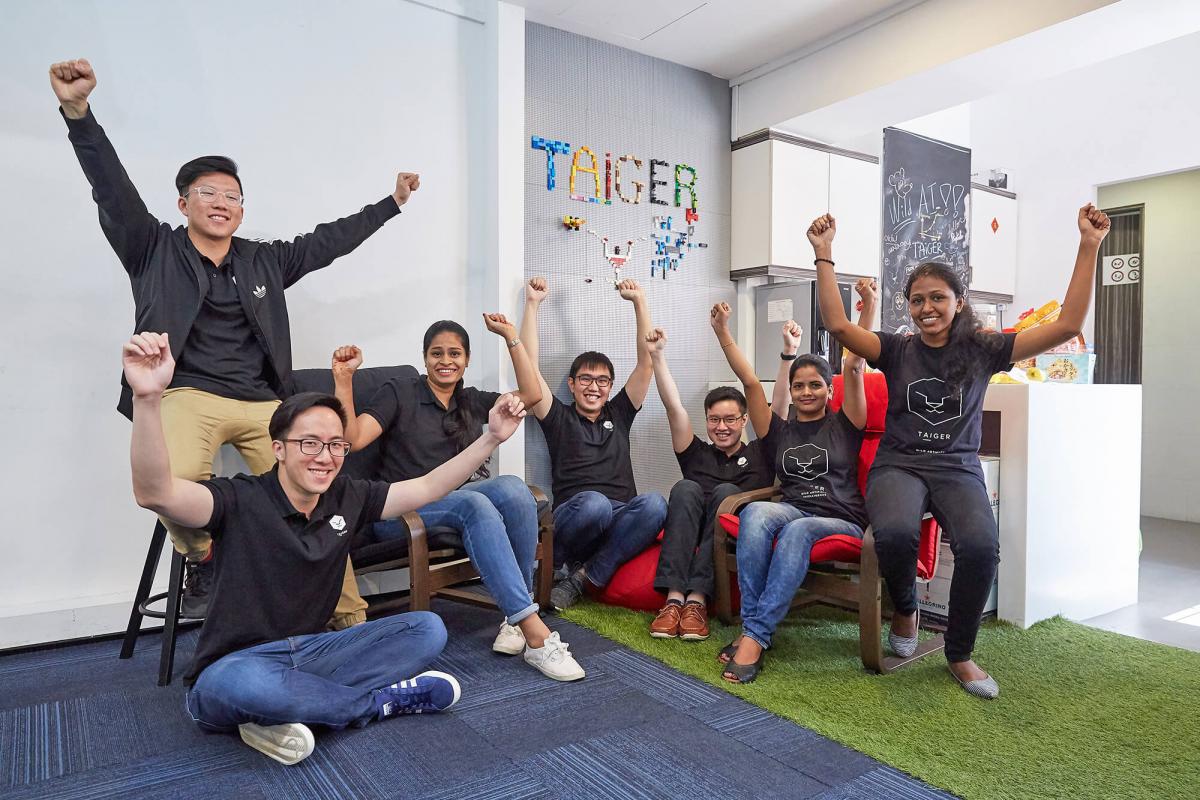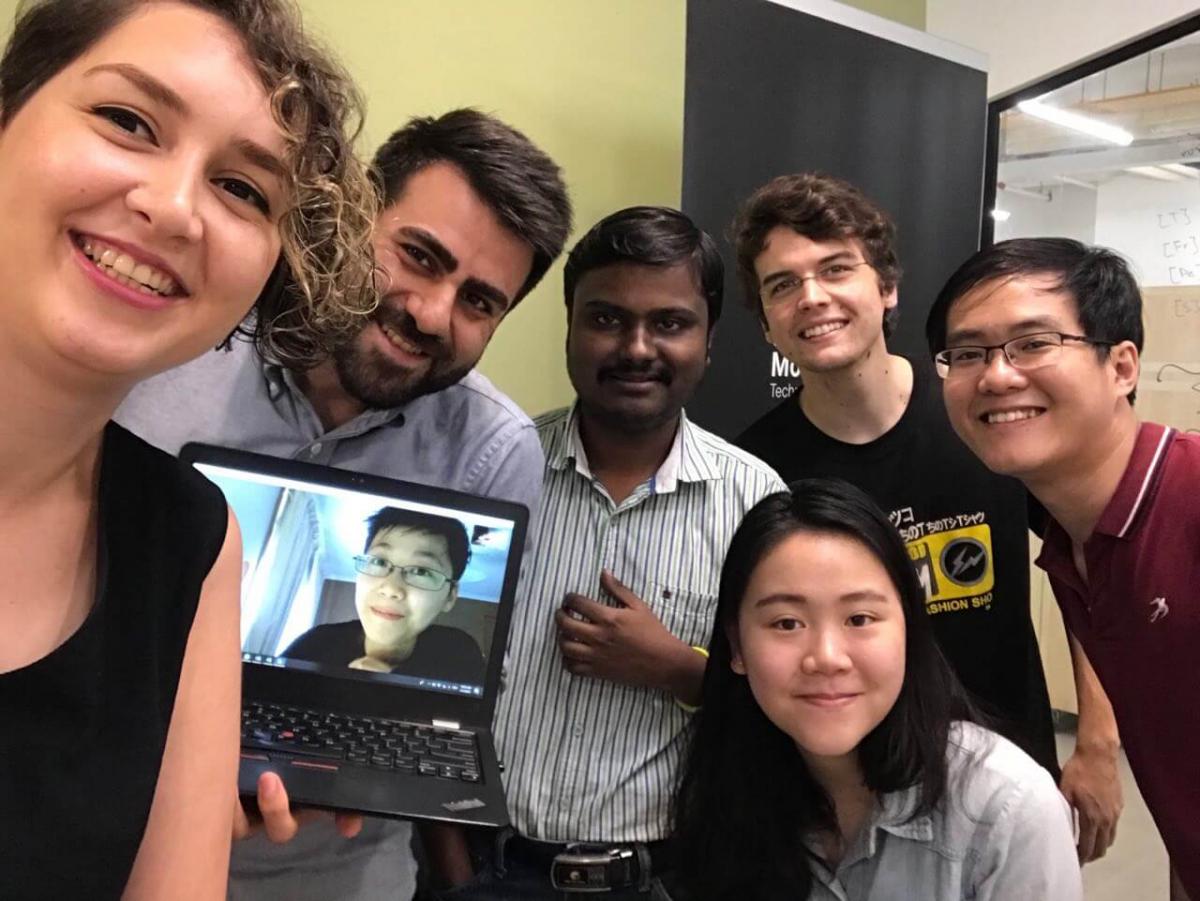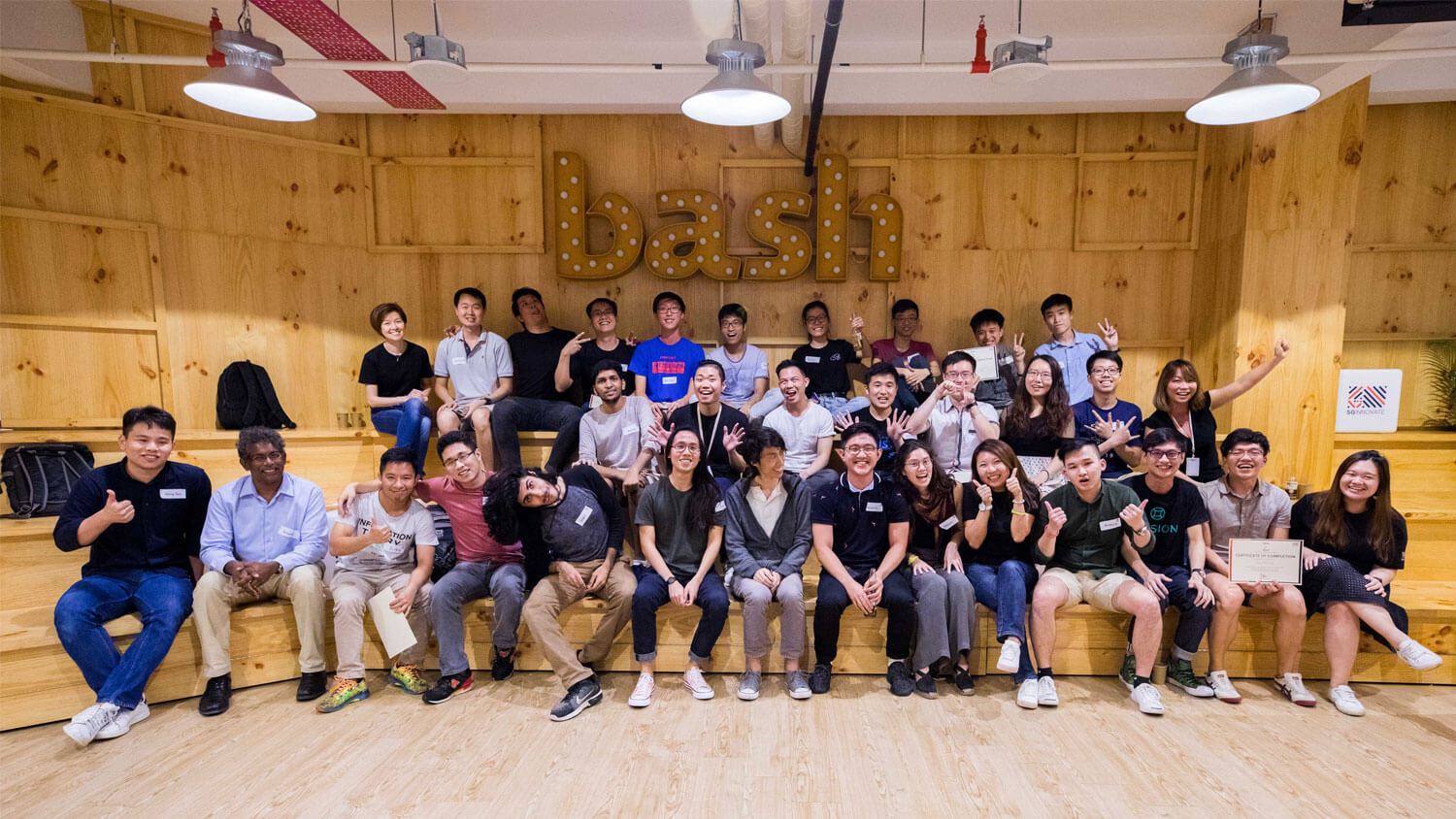The Summation Programme: An Eye-opener Like No Other
Fri, 08/23/2019 - 12:00
Two apprentices with SGInnovate’s Summation Programme discuss their apprenticeships at Singapore-based startups Taiger and See-Mode Technologies.
The profile of an ideal hire has changed over the years. Previously, a degree with first class honours and a professor’s recommendation letter would be enough to signal competence to a potential employer. Today, employers want to hire fresh graduates that they don’t have to train. They expect potential hires to have undergone some form of on-the-job training or internship, allowing them to jump straight into working life.
Enter SGInnovate’s Summation Programme, a three to six-month-long internship that curates a small group of students from Polytechnics and Universities, and places them within Deep Tech organisations across Singapore. During the internship, apprentices are given practical learning opportunities to pick up Deep Tech-related knowledge and skills in real-world settings.
In this interview, SGInnovate chats with two apprentices from the Summation Programme: Mr Kenneth Chee, a Public Service Commission (PSC) scholar and recent master’s graduate from Columbia University; and Mr Ong Chi Wei, a graduate student working towards a PhD in Biomedical Engineering at the National University of Singapore.
From November 2018 to May this year, Kenneth interned at Singapore-headquartered Artificial Intelligence (AI) solutions provider Taiger, where he applied Deep Learning and computer vision-based techniques to extract information fields from document images. From January to June this year, Chi Wei interned at Singapore-based medical imaging startup See-Mode Technologies, where he used AI and computational modelling to predict the likelihood of stroke from medical images.
How did you become an apprentice with the Summation Programme?
Kenneth Chee: Towards the end of my master’s degree, my PSC scholarship officer sent out an email informing us about the possibility of doing a stint at a Deep Tech startup before starting work with the Government. As my master’s programme did not grant me the opportunity to do an internship, let alone with a tech firm, I jumped at this opportunity. I learnt about Taiger from SGInnovate, and applied for an opening at the company upon finding projects that interested me.
Ong Chi Wei: I’ve always wanted to join a startup in medical technology, which would allow me to combine my training in computational modelling and biomedical engineering. See-Mode’s projects, which have the potential to save people’s lives by reducing treatment costs, allowed me to apply my computational modelling skills in the field of medicine.
RELATED VIDEO: LIFE IN A DEEP TECH STARTUP
Could you describe the projects that you worked on during your internship?
Kenneth: I worked on a multitude of projects that can generally be subsumed under the following description: the extraction of different information fields from document images or PDFs.
Chi Wei: I combined computational fluid dynamics knowledge with AI. Using 3D patient geometry reconstructed from CT scans, I investigated flow patterns to help clinicians predict cases of stroke.
What was your overall experience like in the Summation Programme?
Kenneth: It was a challenging but rewarding experience for me. Having no prior tech internship experience, my learning curve was admittedly steep. However, by putting in longer hours and always having a curious mindset, I was able to keep up and learn plenty of things that included client-side considerations. It certainly helped that my colleagues at Taiger were approachable.

Kenneth (5th from right) with his colleagues at Taiger
Chi Wei: Despite being an apprentice, my colleagues at See-Mode were open and receptive to my ideas and comments. Unlike other internships, the Summation Programme organises orientation, training and social events for trainees, which enabled us to forge friendships and understand one another’s working experiences more.
Is there any one anecdote about the Summation Programme that you’ll always remember?
Kenneth: The sheer mix of ups and downs made the entire experience of the Summation Programme memorable. I recall one developer telling me that one of my projects could not be used due to some inconsistencies with his expectations, leaving me quite disappointed. However, the next day, another developer came up to tell me he was pleasantly surprised by the speed at which I was getting results and my progress on another project, which instantly restored my morale.
Chi Wei: There was a critical moment when we were trying to compare our computational results with medical imaging data unsuccessfully, despite trying every method we could think of. We finally discovered that it was a typo error in the programming code that made the results different. That ‘aha!’ moment is one that I will always remember. It was rewarding after an exhausting search for the best solution to fix this technical error.

Chi Wei (far right) with his See-Mode teammates
What would you say is the biggest plus of an apprenticeship, as opposed to classroom learning?
Kenneth: Without a doubt, the biggest plus lies in getting to know the practical side of things such as client demands and hardware limitations.
Chi Wei: The biggest plus of an apprenticeship is that it offers you an opportunity to learn from making mistakes. In the classroom, you are offered material and guidance from an instructor. However, during an apprenticeship, there are no textbooks to explain to you whether what you are doing is right or wrong.
RELATED ARTICLE: REAL-LIFE GLIMPSE INTO DEEP TECH
What are the biggest lessons you have learnt from the Summation Programme?
Kenneth: Two life lessons that are, in my opinion, related to each other come to mind. Firstly, it is important to be adventurous, and secondly, hard work can compensate for the lack of expertise. Without my desire to learn more about Deep Tech, it is highly unlikely that I would have applied for the Summation Programme, and once I am in the Summation Programme, without hard work, I would not have been able to learn and accomplish what I have done.
Chi Wei: The Summation Programme offered me an eye-opening experience on how the industry and startups work. While a company needs to generate profit to survive, they can also develop products that improve human lives and make society better.
Our Summation programme enables apprentices to work in technology-intensive companies on Deep Tech projects such as AI, Machine Learning, and Deep Learning. Applications for our next run start now. Be a part of this journey here!
Trending Posts
- Scaling nanomaterials is challenging — Meet the startup with a hybrid solution
- Surveying Singapore's early-stage emerging tech startup landscape
- Mentor's Perspective: How hiring a TCM Physician has benefitted this MedTech startup
- From meridian points to machine learning
- A Guide to Singapore’s Cell & Gene Therapy Ecosystem






